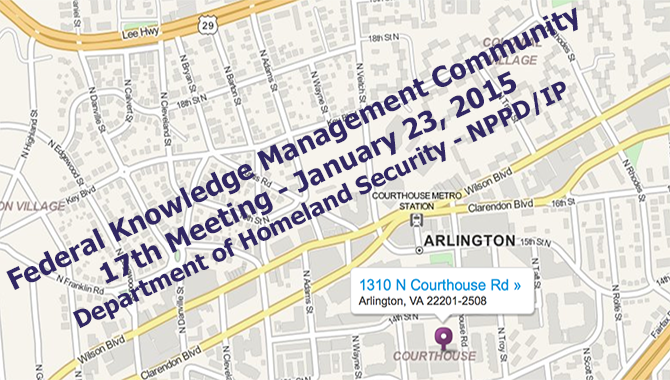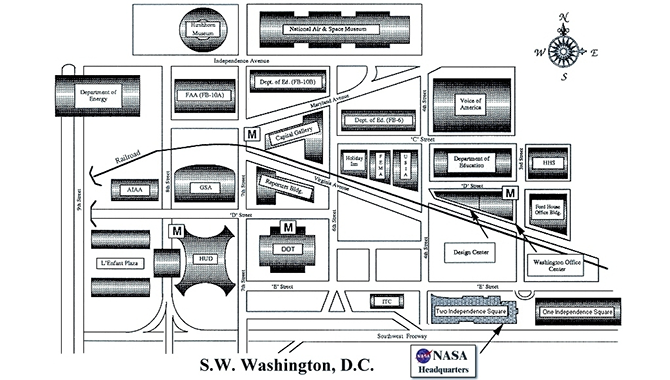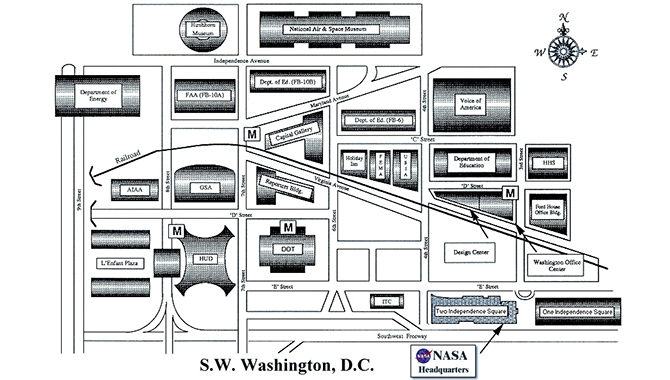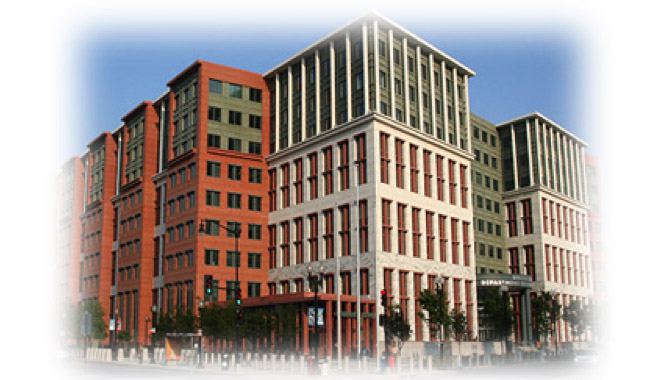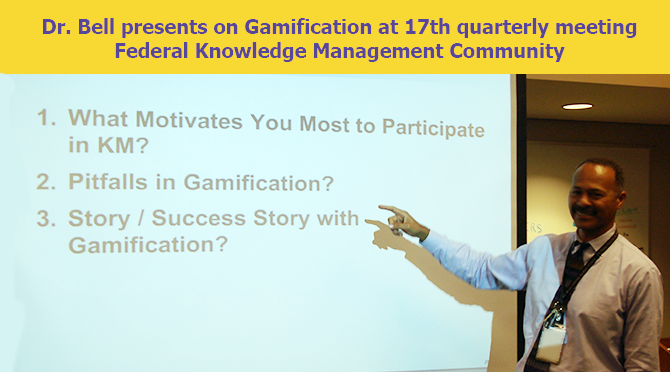
Federal Knowledge Management Community meet for its17th meeting, attended in person and online for a total of 70 knowledge practitioners across two dozen government agencies. This meeting highlighted the application of gamification to knowledge services and lessons learned in sharing knowledge for infrastructure security and protection.
Image Credit: NASA/Mark Schwartz
The 17th meeting of Federal Knowledge Management Community was hosted by the Department of Homeland Security’s Judeth Kaylor on Friday, January 23, in Arlington, Virginia.
The morning session featured Mr. Brian Scully, Deputy Director for Policy, DHS-National Protection and Programs Directorates, Office of Infrastructure Protection, focusing on his lessons learned in his work in infrastructure security and protection.
Although Scully’s examples were from his experience within in FEMA and DHS, his comments were broadly applicable to all knowledge work in which government engages. “How is the project you are running going to take you to the place you are trying to go,” stated Scully. He added that we must create a good system to find documents and policies to help people find quickly the information that would be most helpful to them.
For the afternoon session, Dr. Michael Bell, Kennedy Space Center (KSC) Chief Knowledge Officer, presented then facilitated “KM: Can Gamification Help?” The meeting attendees readily listed the challenges around motivating employee with regards to KM activities. The community shared the role of extrinsic incentives, and in particular, explored the potential and pitfalls of gamification, using their own experiences.
The conversation continually returned to what motivates people to share knowledge. Bell concisely outlined several important motivators:
- Autonomy: “I control.” Autonomy in the workplace exists on a continuum – from jobs where employees have none and are told exactly what to do, to jobs where employees have all the autonomy they want, whenever they want it, as long as the work gets done – and everywhere in between.
- Mastery: “I improve.” Getting better at things is satisfying on a number of fronts. For some employees, it means the job gets easier. For others, it brings the psychic and possibly financial rewards that come from doing something that 1) couldn’t be done before and 2) not everyone else can do.
- Progress: “I achieve.” People respond well when they see that they are making progress on something they care about, whether in the workplace or in life.
- Purpose: “I make a difference.” Every employee needs to feel like they’re making a difference and that their efforts and accomplishments have meaning.
- Social Interaction: “I connect with others.”Humans are innately social creatures, and we want to connect, interact, affiliate, care and share. We also want to be recognized, and we want to understand and be understood.
The FKMC meets quarterly at hosting federal agencies to share strategies for Knowledge Management (KM) and brainstorm creative solutions to make KM more effective within individual agencies, across the federal system, and beyond. In 2014, an average of fifty participants from over two dozen governmental entities attended each session either in-person or online. For this first meeting of 2015, nearly fifty participants attended in person while another twenty attended online.
Please visit the Federal Knowledge Management Community on http://www.max.gov to view Michael Bell’s presentation on gamification (the only presentation available for this meeting), to access other meeting materials, or learn more about the FKMC. Please contact Susan Snyder or call 301-837-3918 with questions.






